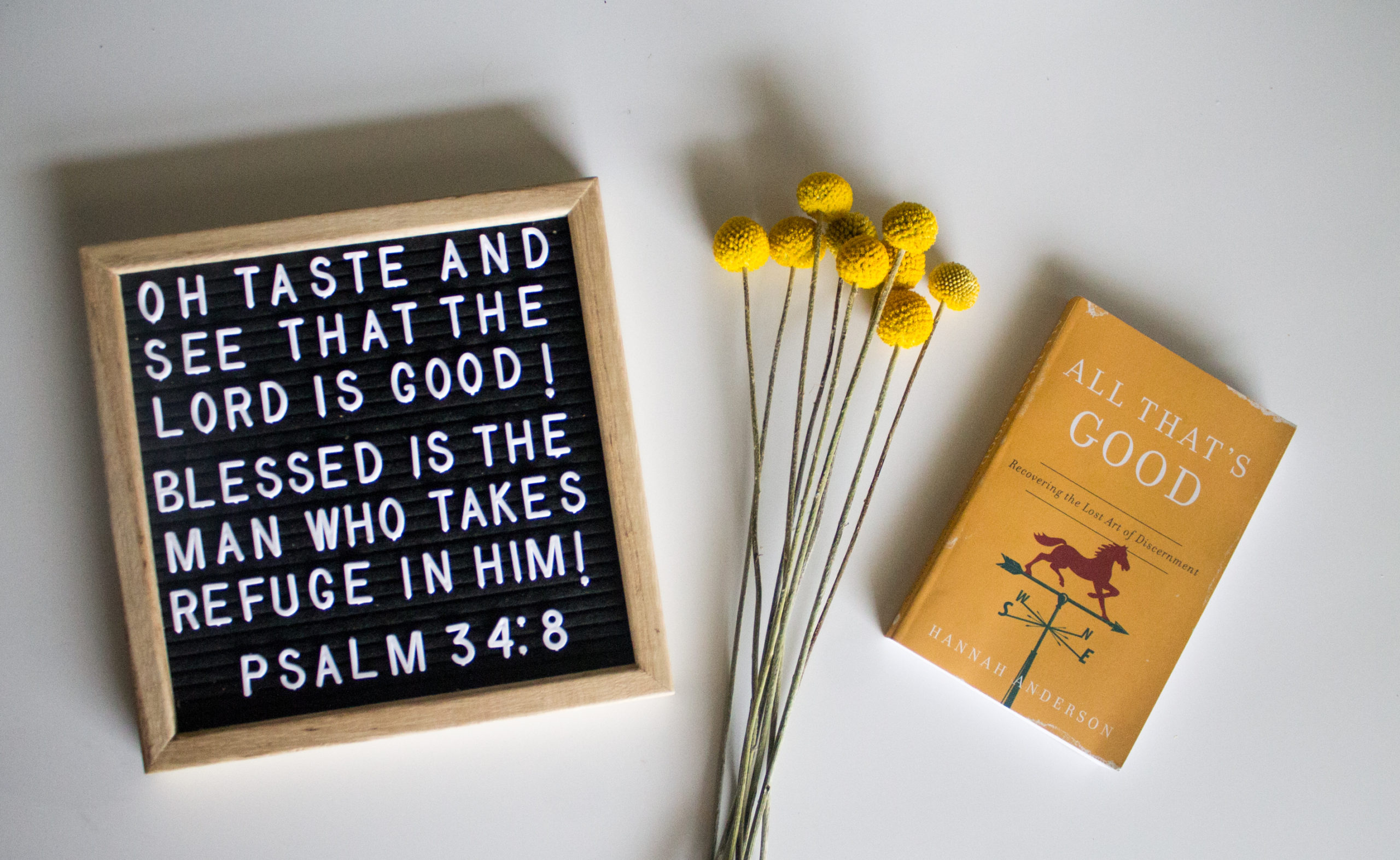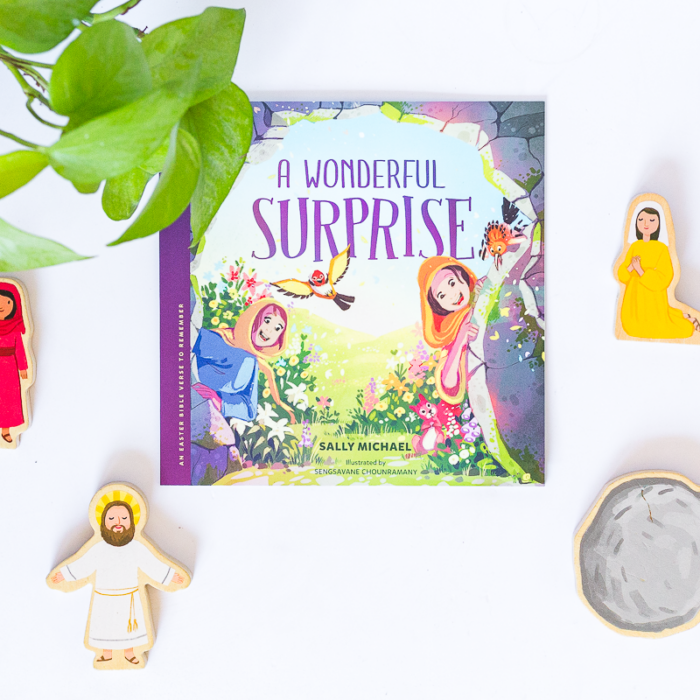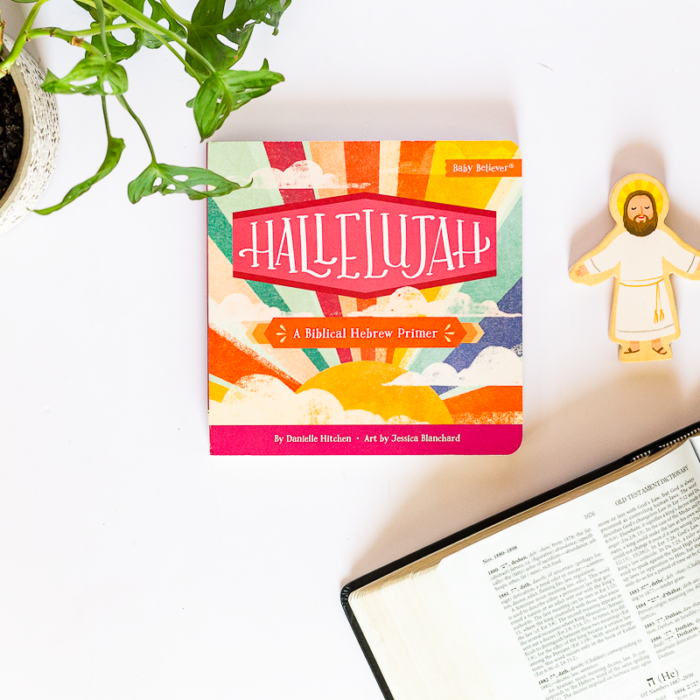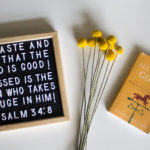This post contains affiliate links
All That’s Good: Recovering the Lost Art of Discernment is the third book from blogger, author, and podcaster Hannah Anderson. When I learned that Hannah was releasing a book that focused on discernment I was very excited. Discernment is a topic that’s really piqued my interest as of late and I was interested to learn what Hannah had to say about it. In the Introduction of the book, Hannah states, “. . . discernment simply means developing a taste for what is good,” (pg. 13). Rather than just informing readers with her thoughts on what it looks like to pursue what is good, Hannah takes readers on a journey through the virtues listed in Philippians 4:8. There is a chapter devoted to each virtue which I really appreciate because it creates a unique lens for exploring the concept of goodness. I enjoyed the personal anecdotes she included at the beginning of each chapter which served as parallels to the virtue she was deliberating on.
Prior to reading All That’s Good, I had thought of discernment as possessing wisdom when it comes to knowing when something is not true. Hannah argues, however, that this is only one aspect of discernment. My favorite chapter is the one on truth in which Hannah wrote, “Our fear might be able to tell us something is wrong, but it cannot tell us what is wrong, how or why it happened, or who even is to blame,” (pg. 71). This idea really struck me because it is very true. As one who vacillates between fear and faith, I found this thought to be very poignant and helpful. As I continued to read this chapter, my heart was convicted when I read, “As much as we want other people’s sins exposed, we must be willing to have ours exposed too,” (76). Because of wrestling occurring in my own heart, I was instantly humbled upon reading this.
My favorite aspect of All That’s Good is that Hannah looks to God as the definition of goodness and challenges readers to think about how decisions they make will bring Him glory. One of the most beautiful quotes in the book is found on page 97, where Hannah said, “. . . when God calls us to righteousness, He appeals to His own, ‘Be holy for I am holy.'” She also said a few pages later, “In order to become discerning people, we must embrace Jesus,” (pg. 101). The way Hannah writes is intelligent, wise, and overall, refreshing. It is evident in reading Hannah’s books (and even in listening to her podcast) that she doesn’t desire to tell readers what to think but rather, how. This makes her a great fit for writing on the topic of discernment. I really enjoyed the refreshing perspective offered in All That’s Good. If you’re looking to learn more about what it means to practice discernment biblically or simply desire a good read, I highly recommend All That’s Good. I received All That’s Good compliments of Moody Publishers in exchange for my honest review.
For further reading:






